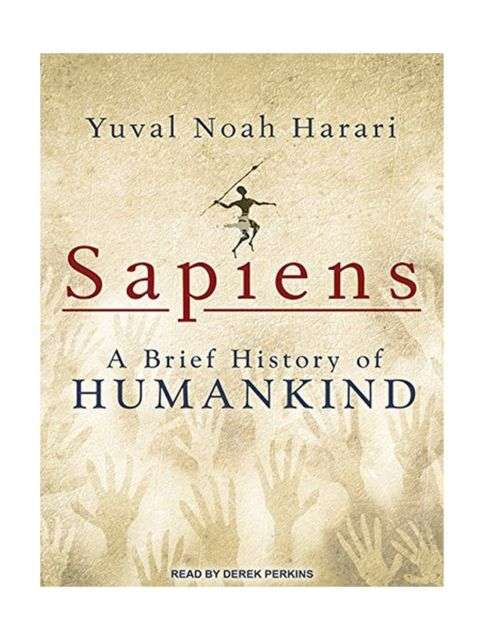
How Sapiens Changed My View On The Past
- Nidhi Malkan
- November 08, 2017
- 0 Comments
- 3 Likes
- 1902 Views

When I was in school, I hated history. Not because I found it boring but I never really understood why do we need to learn about the past when we are constantly told to live in the present. It seemed like such a waste of time. In psych terms, it was ‘doublethink’ or a ‘cognitive dissonance’ that we all face with most of the choices we make. In order to avoid the dissonance, I chose to not study it. But lately, I have come to realise that maybe history isn’t as much about the past as much as it is learning about where we all come from.
It’s not a realisation that dawned on me in a shower. Which by the way, is the place most people get amazing revelations from. It’s a realisation that came to me when I was reading this book - 'Sapiens’. The sub title read 'A Brief History of Humankind.’ And for a person who ‘hated history’ and did everything in her power to avoid the subject, this seemed like an odd choice of book to read. But one night, I plunged right into it and it just blew my mind.
It wasn’t as much about history but about evolution. About change and about what is it that makes us who we are. And isn’t it nice to know what and how we came to be? Wouldn’t it be easier to know what mistakes have been made so we can avoid them? But maybe by making the same mistakes again, we learn better.
Perhaps history is not that important and making mistakes is inevitable. But evolution is the basis of our existence today and if we can vouch for something to remain constant, it is change. It’s how we try to resist change that is unnatural. By ignoring the process of evolution, we remain ignorant to know who we are, where we come from and what we stand for.
Shouldn’t we be hell bent on studying how we’ve changed, how we’ve evolved and where we’ve come from? Because let’s face it. We don’t know where we’re headed but we all can learn where we come from. And it’s not all that different.
Biologically there is very little difference between all of us. But the basis of psychology states that every individual is different. And that maybe true as we’re ‘raised’ differently. By nature, we are all very similar; it’s only how we are nurtured that makes us different. But how different are we really? And where do we draw the line of difference? According to the ‘Social Identity Theory’, there are two groups - ‘In Group’ and ‘Out Group’. In simpler terms, 'Us’ and 'Them’. But what we fail to realise is that this distinction between 'us’ and 'them’ is just a social construct. An imagined order which gives more power to the ones who already have power and even less power to those who are born with even slightest difference biologically. So how or more specifically when do 'they’ become 'us’? Can nurture really defeat the nature? This differentiation which is only in our minds, can it ever be broken? Can the social construct imposed on us ever break free?
I think it is important to realise that we are not all that different inside. We all have the same colour of blood, we feel the same emotions when we lose a loved one, we all express happiness in the same way, and we all have the capacity to love and be loved. ‘You’ and ‘I’ are the same. And once we understand this, the world may be a better place to live in. We would definitely be kinder to one another. Perhaps, even understand each other better.
This is not a book review. This is not to talk about how great the book is. This is to realise the importance of our existence and the narrative behind it. Don’t listen to me. Listen to Theodore Roosevelt - ‘The more you know about the past, the better prepared you are for the future.’ I’m going to listen to Roosevelt and learn about the history of humankind and go a mile extra to learn even about the brief history of tomorrow (Read Homo Deus)

Nidhi Malkan
START LEARNING
START LEARNING
START LEARNING
START LEARNING
START LEARNING
START LEARNING
How To Market Music in India
By Saloni Handa
What really goes into building a music brand? Ask Saloni! Saloni Handa is the brand manager at Viacom 18, in one of...
View ChatHow To Make Your Brand Valuable
By Rajesh Srivastava
Whether you are an MBA Student, Brand Manager, or aspiring Marketing Professional, this live chat is a great opport...
View Chat ALL COURSES
ALL COURSES  COMMUNITY
COMMUNITY  LIVE CHATS
LIVE CHATS  EXPERTS
EXPERTS  MY CERTIFICATES
MY CERTIFICATES  ABOUT
ABOUT  SUPPORT
SUPPORT
Comments (0)
*Some Comments would not be shown if marked as Spam